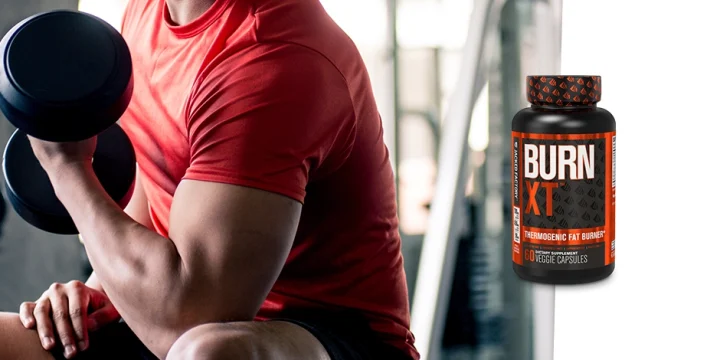As a personal trainer, I’ve heard many different crazy ideas to promote weight loss. One interesting conversation I recently had with a physician was about how the sun could impact fat cells, a concept that intrigued me deeply.
I was researching other health benefits of sun exposure, but impacting fat cells seemed a bit strange to me.
Our team decided to spend a few weeks researching and talking to some experts to find out what’s behind this idea and if sunbathing can actually burn calories.
Let’s find out what the experts say.
Quick Summary
- Tanning can promote fat burning as lipid droplets in fat cells reduce when exposed to the sun's blue light wavelengths.
- Tanning triggers Vitamin D production, enhancing bone density and immune system health.
- According to the University of Alberta in Canada, lack of sunlight in winter may contribute to typical weight gain during darker months.
- In my opinion, while tanning may offer some benefits, it's not a primary or effective method for weight loss, and the risks, such as skin cancer, should be carefully considered.
Can Tanning Make You Lose Weight?

Yes, tanning can make you lose weight, but it's not a primary method.
Reflecting on my tanning routine, the University of Alberta's study caught my eye. It suggests that sun's blue light reduces lipid droplets in the skin [1]. These are the white fat cells you want to ditch in a weight-loss plan.
Personally, with regular sun exposure, I noticed a slight improvement in my skin tone.
Researchers stumbled on the fact that it's the sun's blue light, not ultraviolet, interacting with fat tissue - the blue light your eyes can see. The study also notes winter's lack of sunlight may lead to fat storage, causing typical weight gain in darker months.
What surprised me most is that it's visible blue light, not UV rays, impacting fat tissue - unexpected during my vitamin D skin production research.
Does Tanning Burn Calories?

In my experience, just lying in the sun and tanning doesn't burn many calories. This confirms the misconception that passive sunbathing leads to calorie burn.
ResearchGate explains that as the sun heats your body, your basal metabolic rate decreases [2]. With a lower metabolic rate, you burn calories at a slower pace.
So, lounging in the sun won't have the desired effect on your body; you won't burn as much fat as you would in a cooler, more active environment.
I also checked other research on sunshine's impact on burning calories, but none of the studies I found linked increased sun exposure to higher calorie burning.
Related Article: Burning Calories vs Burning Fat
Are There Other Health Benefits?
Yes, there are other health benefits from tanning that can be enjoyed as long as you do it in short doses.
First of all, according to a sudy by Skin Cancer Foundation, UV light has a direct impact on your skin’s ability to naturally produce vitamin D [3].
And vitamin D plays a key role in maintaining a functioning immune system and promoting stronger bone density.
“When your skin is exposed to sunlight, it manufactures vitamin D. The sun’s ultraviolet B (UVB) rays interact with a protein called 7-DHC in the skin, converting it into vitamin D3, the active form of vitamin D.”
- Anne Marie McNeill, MD, Ph.D., skincancer.org
As per a study by Mayo Clinic, insufficient sunlight exposure has also been linked to higher levels of depression and reduced mental health [4].
What Are The Risks?
The major risk with tanning is that you could be increasing your chances of skin cancer.
This is entirely dependent on how much natural sunlight you’re exposed to and how sensitive your skin is to UVA and UVB rays.
Medical professionals from WebMed recommend that you limit your direct unprotected sun exposure to about 15 minutes per day [5].
Alternatives to Traditional Tanning Methods
Choosing safer alternatives for achieving a desired skin tone is crucial to avoid the risks linked to UV exposure.
- Self-tanning products, such as lotions and creams, offer a sun-kissed glow without harmful rays.
- Spray tanning, administered in controlled environments, provides a tan appearance without UV damage.
- Tanning supplements, containing ingredients like beta-carotene, promote a bronze tone from within.
These alternatives reduce the risk of skin cancer, premature aging, and other UV-related complications.
Prioritizing these options not only enhances appearance but also safeguards long-term skin health, promoting a radiant complexion without compromising well-being.
FAQs
Does the Sun Shrink Fat Cells?
Yes, the sun can shrink fat cells. However, the effect is slow and limited to the cells directly below your skin. And you should be limiting how much sun exposure you get each day to avoid developing skin cancer.
Should You Tan Every Day to Lose Fat?
No, you shouldn’t tan every day to lose fat. Occasional and limited sun tanning is fine, and up to 15 minutes a day without sunscreen is generally classed as safe.
But daily and prolonged time in the sun could cause more problems than benefits.
Take The Sensible Approach To Tanning
While there is scientific evidence that tanning will burn fat, there are also very good reasons to be cautious and limit how much time you spend in the sun.
Healthy sunshine exposure of 15 to 30 minutes is not going to start burning fat in large amounts, but it certainly does bring other helpful benefits.
To lose weight more efficiently, I’d recommend using any of the following fat burners:
These can naturally raise your body temperature through a process called thermogenesis. The result is that you burn more calories from stored fat reserves throughout the day.
References:
- https://www.sciencedaily.com/releases/2018/01/180110113007.htm
- https://www.researchgate.net/publication/5389254_Climate_variables_as_predictors_of_basal_metabolic_rate_New_equations
- https://www.skincancer.org/blog/sun-protection-and-vitamin-d/
- https://www.mayoclinic.org/diseases-conditions/seasonal-affective-disorder/symptoms-causes/syc-20364651
- https://www.webmd.com/a-to-z-guides/ss/slideshow-sunlight-health-effects
About The Author
You May Also Like






